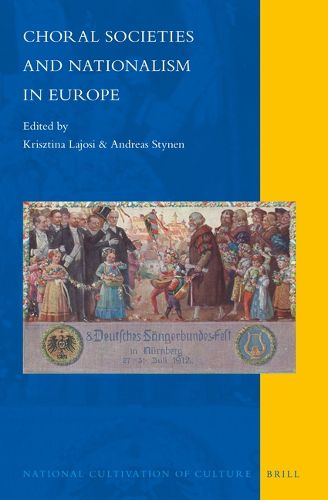Readings Newsletter
Become a Readings Member to make your shopping experience even easier.
Sign in or sign up for free!
You’re not far away from qualifying for FREE standard shipping within Australia
You’ve qualified for FREE standard shipping within Australia
The cart is loading…






This wide-ranging contribution to the study of nationalism and the social history of music examines the relationship between choral societies and national mobilization in the nineteenth century. From Norway to the Basque country and from Wales to Bulgaria, this pioneering study explores and compares the ways choral societies influenced and reflected the development of national awareness under differing political and social circumstances. By the second half of the nineteenth century, organized communal singing became a primary leisure activity that attracted all layers of society. Though strongly patriotic in tone, choral societies borrowed from each other and relied heavily on prominent German or French models. This volume is the first to address both the national and transnational significance of choral singing.
Contributors are: Carmen De Las Cuevas Hevia, Jan Dewilde, Tomas Kavka, Anne Jorunn Kydland, Krisztina Lajosi, Joep Leerssen, Sophie-Anne Leterrier, Jane Mallinson, Tatjana Markovic, Fiona M. Palmer, Karel Sima, Andreas Stynen, Dominique Vidaud, Ivanka Vlaeva, Jozef Vos, Gareth Williams, Hana Zimmerhaklova.
$9.00 standard shipping within Australia
FREE standard shipping within Australia for orders over $100.00
Express & International shipping calculated at checkout
This wide-ranging contribution to the study of nationalism and the social history of music examines the relationship between choral societies and national mobilization in the nineteenth century. From Norway to the Basque country and from Wales to Bulgaria, this pioneering study explores and compares the ways choral societies influenced and reflected the development of national awareness under differing political and social circumstances. By the second half of the nineteenth century, organized communal singing became a primary leisure activity that attracted all layers of society. Though strongly patriotic in tone, choral societies borrowed from each other and relied heavily on prominent German or French models. This volume is the first to address both the national and transnational significance of choral singing.
Contributors are: Carmen De Las Cuevas Hevia, Jan Dewilde, Tomas Kavka, Anne Jorunn Kydland, Krisztina Lajosi, Joep Leerssen, Sophie-Anne Leterrier, Jane Mallinson, Tatjana Markovic, Fiona M. Palmer, Karel Sima, Andreas Stynen, Dominique Vidaud, Ivanka Vlaeva, Jozef Vos, Gareth Williams, Hana Zimmerhaklova.